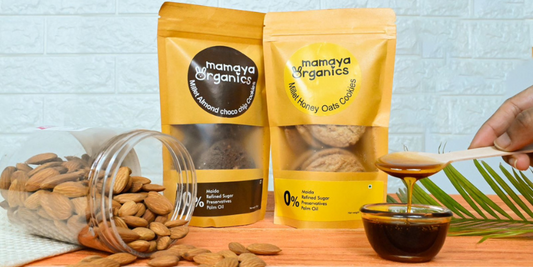Diapering is an essential part of parenting, and choosing the right type of diaper can make a significant difference. Many parents are now opting for organic disposable diapers as a more environmentally friendly alternative to traditional disposables. However, it's crucial to understand how to properly dispose of these diapers to minimise their environmental impact. This blog post will guide you through the best practices for disposing of organic disposable diapers, while incorporating key terms related to reusable diapers.
Understanding Organic Disposable Diapers
Organic disposable diapers are made from natural, biodegradable materials that are less harmful to the environment compared to conventional disposable diapers. While they offer the convenience of disposability, it's essential to dispose of them correctly to ensure they break down as intended.
Steps to Properly Dispose of Organic Disposable Diapers
1. Remove Solid Waste
Before disposing of an organic disposable diaper, remove any solid waste. This step helps reduce the amount of waste in landfills and improves the decomposition process. You can flush the solid waste down the toilet, just as you would with reusable diapers.
2. Wrap the Diaper Securely
Once the solid waste is removed, wrap the diaper securely to contain any remaining moisture and odor. Use the adhesive tabs to fold the diaper into a compact shape. This step is similar to preparing newborn cloth diapers for laundry.
3. Use Biodegradable Diaper Bags
To further reduce your environmental impact, place the wrapped diaper in a biodegradable diaper bag. These bags are designed to break down along with the diaper, making them a better option than regular plastic bags. This practice aligns with the principles of using washable diapers and other eco-friendly baby products.
4. Dispose of the Diaper in the Appropriate Bin
Check your local waste disposal guidelines to determine the appropriate bin for organic disposable diapers. Some areas have specific bins for biodegradable waste. By following local regulations, you ensure that your efforts to be eco-conscious are effective.
5. Consider Composting (If Permitted)
In some regions, you can compost organic disposable diapers in a dedicated composting facility. Contact your local waste management authority to see if this option is available. While composting may not be as common as using organic cloth diapers, it offers a sustainable disposal method.
Benefits of Proper Disposal
- Environmental Impact: Proper disposal helps organic disposable diapers break down more efficiently, reducing their environmental footprint.
- Health and Hygiene: Removing solid waste and using biodegradable bags keep your home clean and odor-free, much like the benefits of using newborn cotton diapers.
- Community Responsibility: Following local guidelines and supporting eco-friendly practices contributes to a healthier, cleaner community.
Consider Reusable Diapers
While organic disposable diapers are a step towards sustainability, you might also consider the long-term benefits of reusable diapers. Reusable cloth diapers offer an eco-friendly and cost-effective alternative. These diapers are designed to be used multiple times, reducing waste and providing a comfortable, chemical-free option for your baby.
Conclusion
Disposing of organic disposable diapers properly is essential for minimizing their environmental impact. By removing solid waste, using biodegradable bags, and following local disposal guidelines, you can make a positive difference. Additionally, exploring options like reusable nappies and organic cloth diapers can further enhance your eco-friendly parenting practices.
For more tips on sustainable diapering and to explore the best cloth diapers, stay tuned to our blog! Happy and responsible diapering!









